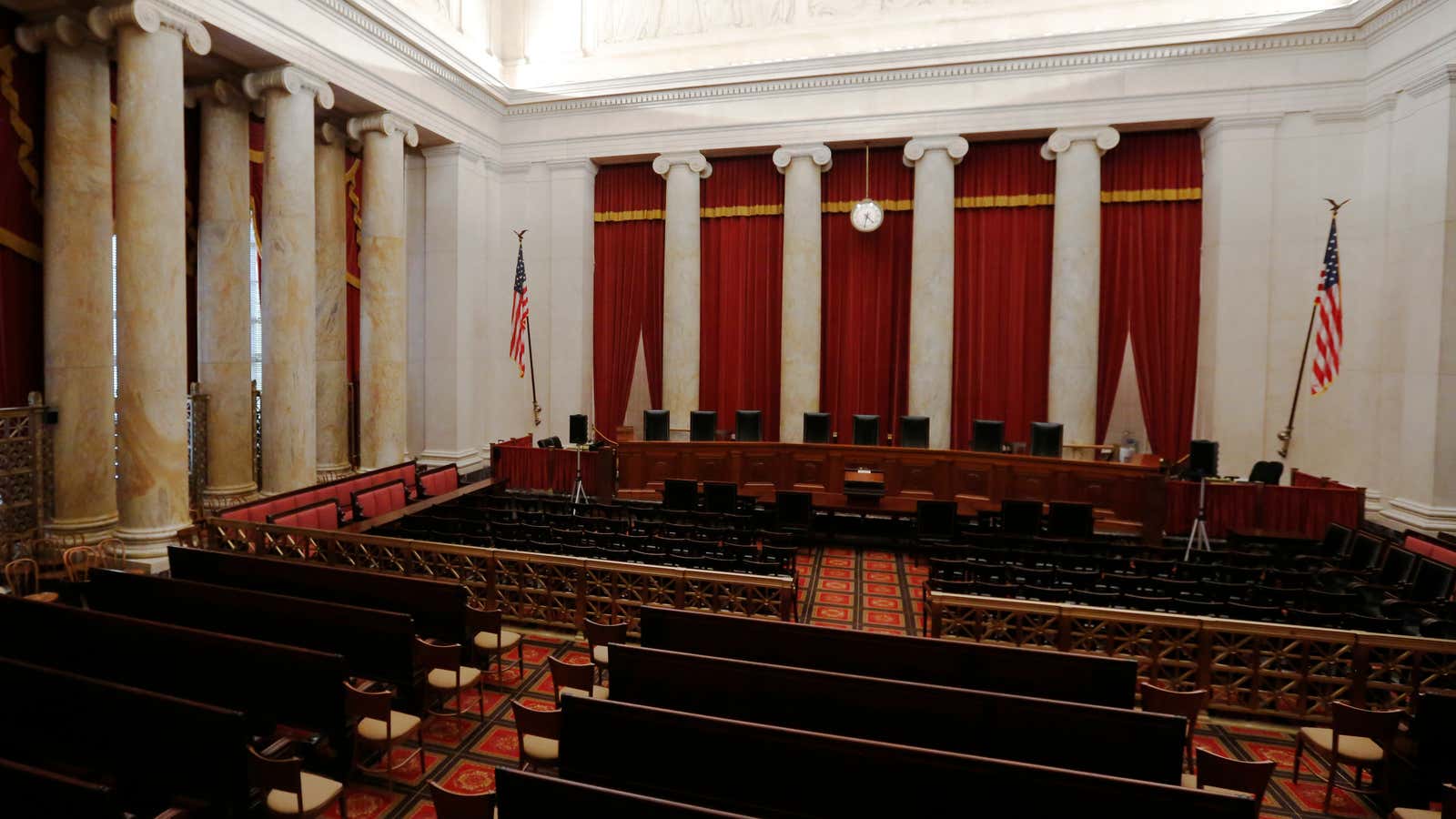While once a fail-safe way to land a well-paying job, going to law school in the US is nowadays proving more of a risk than a guarantee of a cushy salary. Legal job prospects are shrinking, tuition is rising, and students are being warned to think twice before committing to a degree program.
Some schools are, of course, more a gamble than others. Online lender SoFi looked at data from 60,000 student loan refinancing applications it received over a three-year period and sorted law schools by their average tuition cost compared to their graduates’ average verified income. Schools offering the greatest return on investment include Brigham Young ($108,916 annual salary vs. $64,873 debt) and Yale ($171,779 annual salary vs. $123,793 debt).
Others, though—like Thomas Jefferson School of Law, which was (unsuccessfully) sued in 2016 over whether it was worth having attended in the first place—offer an annual salary that’s half that of graduates’ debt. Florida Coastal School of Law is ranked the worst-value school, with average $84,664 annual salary and average $158,427 debt.
Note that SoFi’s report only includes data from its clients, meaning the number of law schools examined is limited, and the debt and salary figures are not exactly representative of graduates at large. Still—from the information available, it’s obvious that the worth of a law degree, as an investment, can swing widely.
“The quality of the program does greatly impact your ability to pay back that debt later,” Amanda Wood, director of business operations and strategy at SoFi, told Quartz. “In the past, people have just gone to well-ranked law schools, or any school they could get into, and that’s not always the wisest decision.” Looking at earnings potential compared to loan debt, she says, is a more financially savvy approach.
And it’s one prospective students should be increasingly advised to adapt. Thanks to creeping tuition costs, the typical new law graduate leaves campus with $140,000 of debt tied to their diploma—and thanks to the consolidation of many legal jobs, post-recession, there’s a chance that sum could linger for a significant time.
No wonder some lawyers are desperate enough to sue their own schools.
